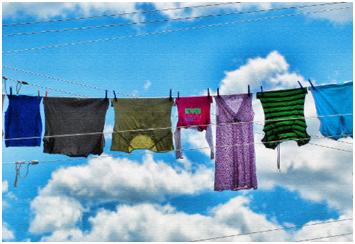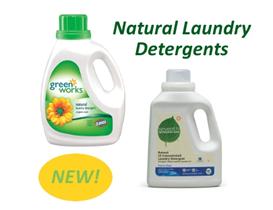Though in start it may look like a pedestrian chore to you for how to go green with laundry, but doing laundry has great impacts than what we may think. According to a report by Marks & Spencer and Proctor &Gambles, 75 to 80 percent of our clothing’s lifecycle depends on their drying and washing processes.
Actually it takes much heat and energy to wash and dry the clothes, so a huge impact of personal efforts in form of the energy and consumption of water. It will leave negative footprints on our environment and focus to green our laundry processes.
Using the greenbacks by following some eco-friendly laundry processes, you can benefit the environment and also saving the greenbacks. The statistical figures showing that an average household using about 400 loads of laundry every year with consumption of water about 13,500 gallons. But switching to an energy star machine can save us as much as 7,000 gallons of water resource every year.
If a washer has been working for cleaning clothes from 11 years, he has used approximately water which could fill the three backyard swimming pools. This will be equal to water required for 6 people for their lifetime use. But an energy start washer can save you up to $600 operations cost over its usage time as compared to device which is not bearing any label.
Conventional detergents are prepared from synthetic petrochemicals which are hard for water and whole environment. Also such kind of detergents will leave residue on clothes and their toxic ingredients left behind on your clothes will rub against boy skin and will cause rashes. But you can bring safety for yourself and cleaning of your clothes through green detergents and soaps to use for washing.
If you have considered searching the soaps, select the natural liquid soaps in which there are no artificial toxic ingredients, you may prefer to use Dr. Brunner’s Magic Soaps (www.drbronner.com) and you should use same amount of soaps as for detergent to use.
Detergents soaps react with chemicals in water and leave a dulling film on your clothes. To stop this, Annie Berthold-Bond has recommended using baking soda with it. She have told that if you want to cope with hard water and soaps leaving dulling film, add half cup of baking soda and if water is much hard, you should leave the soda in water for 10 minutes.



